The Brexit puzzle
- Published
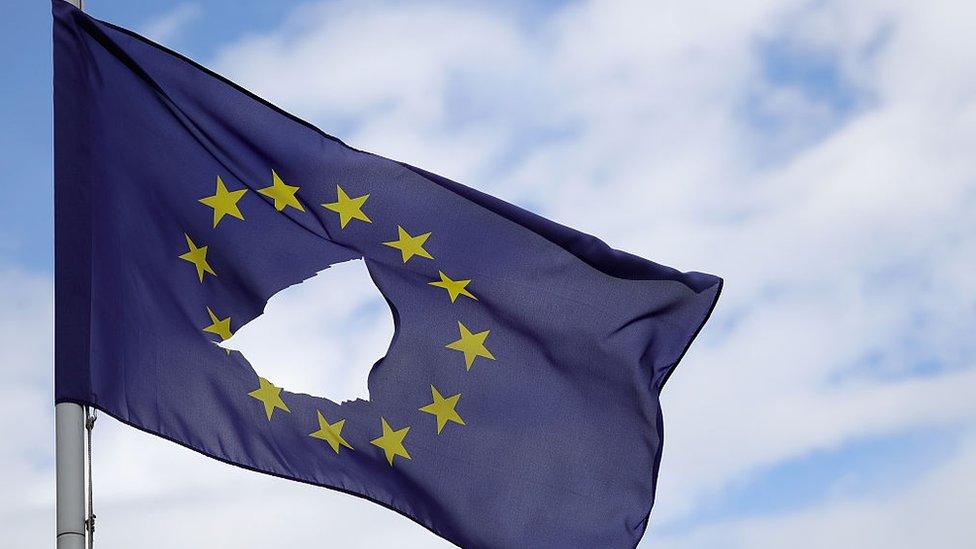
The year ends with a Brexit puzzle: a multi-coloured cube that, however twisted and turned, defies easy solution.
Six months on from the UK referendum, the process of leaving the EU is enveloped by a cloud of unknowing.
The uncertainty does not relate to Britain's eventual departure, rather to how it will be achieved and at what cost.
Since June almost every comment from key cabinet ministers and leaders in Europe has been faithfully reported and dissected but, for all the words spoken, there is little clarity.
Indeed - certainly in the foreign ministries and the halls of Brussels - there is scarcely-concealed irritation with the blandness of government statements about doing the best for Britain or favouring a "smooth and orderly process".
And, as I witnessed in Italy, the Foreign Secretary Boris Johnson did not get the best reviews when he cited the UK's consumption of 300 million bottles of Prosecco as evidence of an enduring trading relationship.
What the government would like, would be to stay in the EU's single market while reducing the numbers of EU migrants.
That is not possible, says a chorus of EU leaders, despite their own misgivings about immigration, insisting there will be no compromise over freedom of movement.
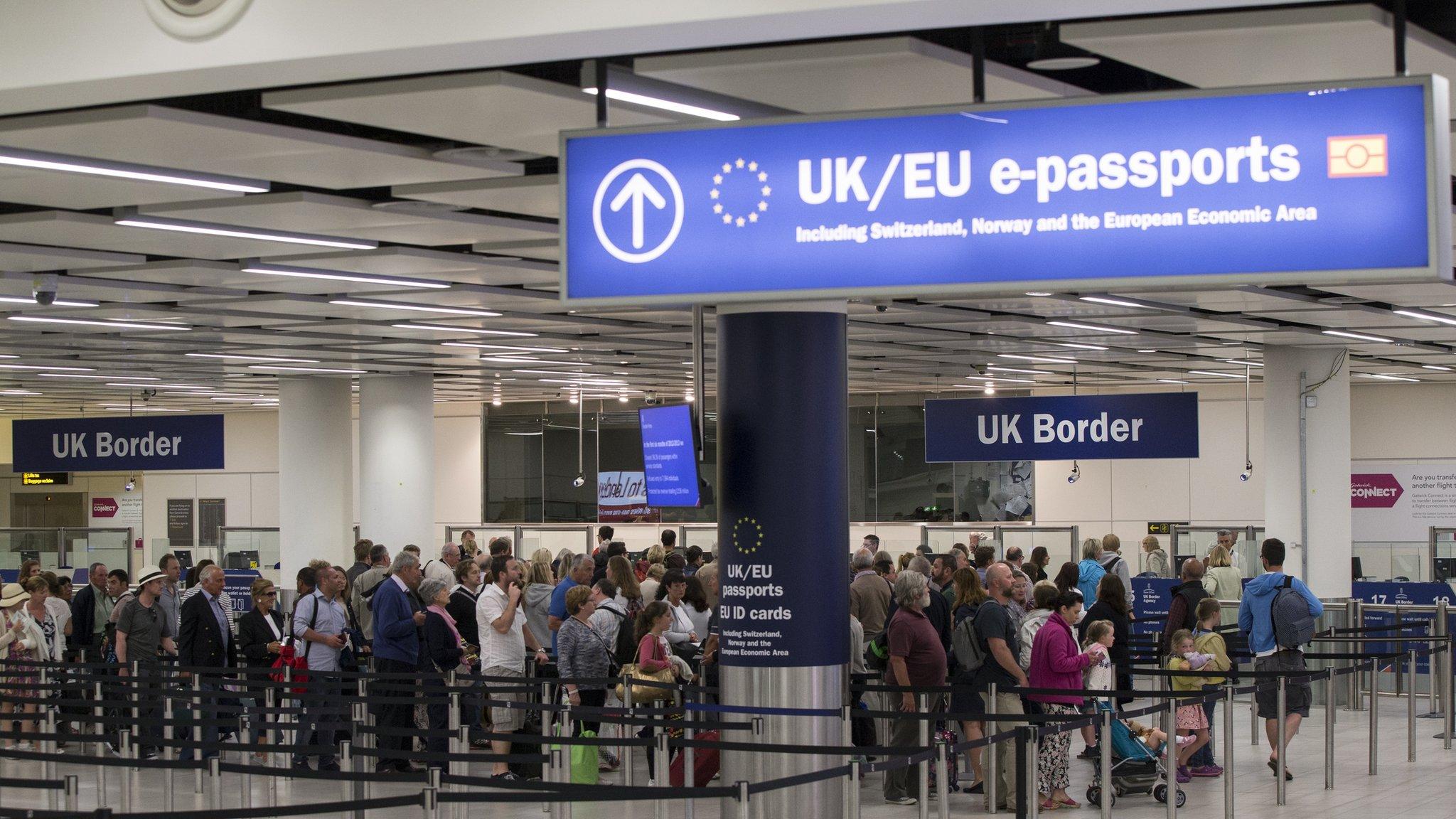
Freedom of movement will be a major thread in the UK/EU negotiations
The Danish Finance Minister Kristian Jensen was the latest politician to warn "there's no such thing as a free lunch. Not even for a country like Britain... So, if the EU is to stay open to Britain, then Britain has to follow the same rules as other countries, like Norway."
And that, of course, would mean accepting the politically impossible: freedom of movement. And rulings of the European Court of Justice.
So it is presumed the UK will leave the single market.
But powerful voices are pushing back, warning of the economic damage that leaving the single market would do.
As the year draws to a close, all the signs point to a messy divorce.
When negotiations start in April, after Article 50 has been triggered, there is one underlying reality: Europe's leaders will not allow the UK to get a better deal than it would have got by staying in the EU.
Most of those heads of government are quick to deny they want to punish Britain but, on the other hand, they believe the UK must be seen to hurt.
Voters in the Netherlands and France must not be tempted to try the exit path.
Francois Hollande, shortly to fade from the political scene, speaks for many when he says the Brexit deal must "serve as an example for those who seek the end of Europe".
Privately many senior European officials concede they are facing an existential threat: that anti-establishment parties threaten the future of the Union.
However unlikely, a victory for Marine Le Pen in France would set France on the road to its own EU referendum.
If there were to be a Leave vote it is hard to imagine the EU surviving without France.
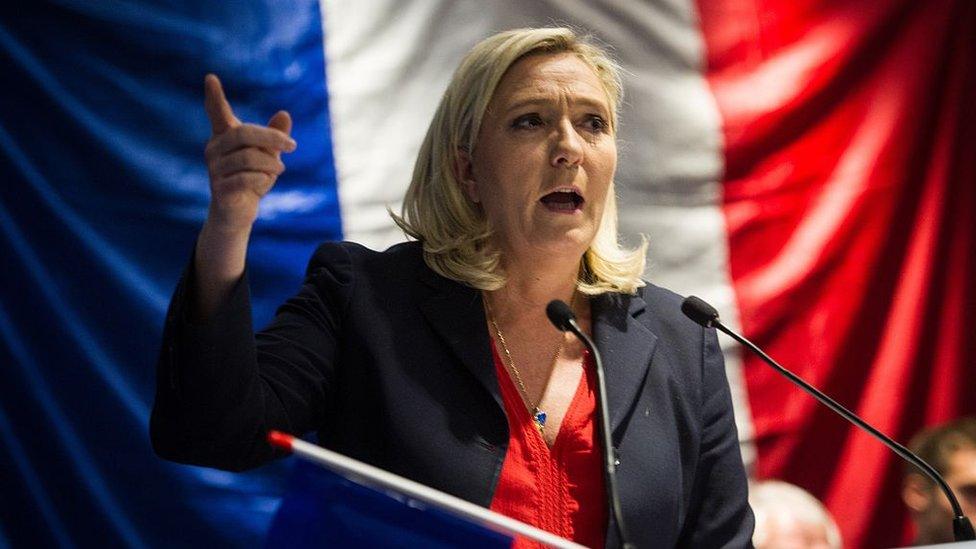
Marine Le Pen has promised a French referendum on EU membership should she win the presidency
So, when the UK/EU negotiations start, the instincts in Europe's capitals will be, first and foremost, to protect the Union.
Brussels insists that the divorce must come first.
It will not talk about trade until the terms of withdrawal have been agreed.
And those early talks will include highly controversial issues like how much Britain must pay to exit, to settle its accounts, and to cover obligations like staff pensions.
In Brussels they put the total figure at 50bn euros (£42bn) or higher.
The expectation in Brussels is that the terms of the divorce will be agreed by March 2019 but not much else.
Once the initial deal is concluded, the chief negotiator on the EU side, Michel Barnier, favours moving to a transitional period while the terms of the trade agreement are worked out.
Everyone, it seems, has a transition timetable.
Some believe a five-year period may be necessary.
The UK chancellor and the Bank of England have spoken of a transition lasting two to three years to provide clarity for the business and financial community.
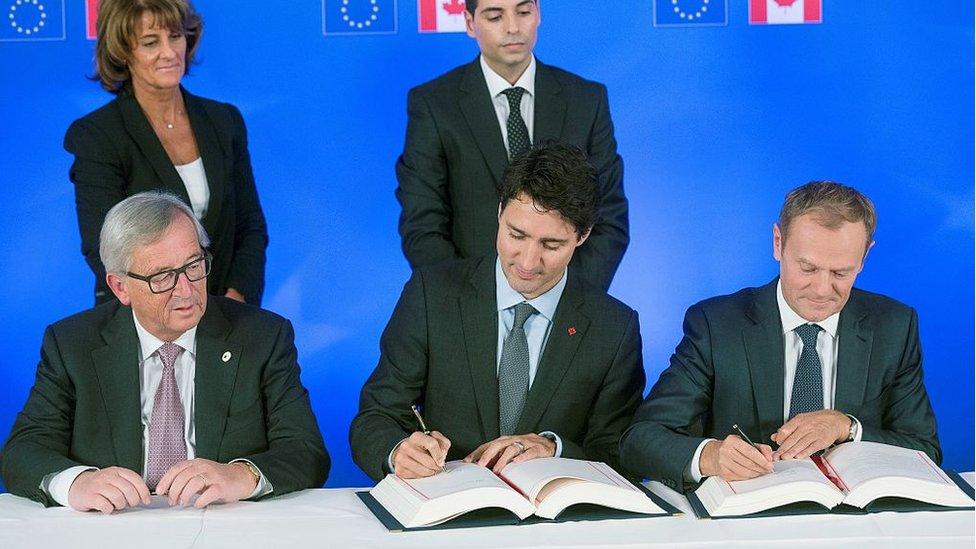
The Canada/EU trade treaty took seven years to negotiate
A trade deal took the Canadians seven years and it still has not been ratified although, unlike Canada, the UK already trades under EU laws and regulations.
Even if it makes sense, a transition period will pose some awkward political questions.
Would the UK still have to contribute to the EU budget or continue to accept the primacy of EU law? And how about freedom of movement?
Theresa May could find herself going into an election in 2020 with divorce papers signed but much of what the public most dislikes about the EU still in place.
It is also doubtful whether a transition period would deliver the reassurance that is claimed for it.
Banks and financial companies want a continuation of what they call "passporting" - the right to sell their services anywhere in the EU.
But there are signs that some companies will not put up with years of uncertainty.
One of Japan's banks has already said it will expand operations in Amsterdam.
Other international banks have warned that they will reduce their footprint in London and open posts in the EU within six months if there is no further clarity.
Lloyd's of London, the insurance market, has said it will move part of its operation to the EU.
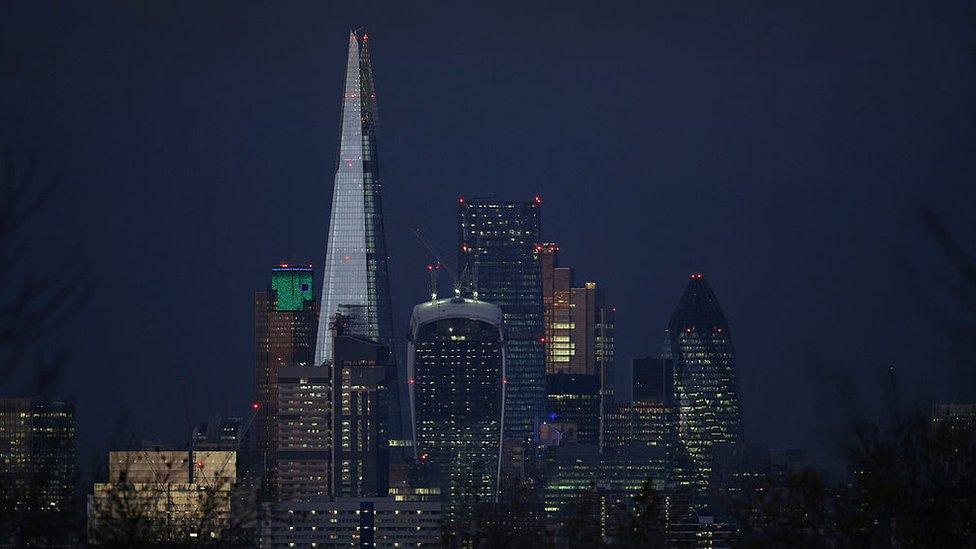
The UK's financial sector will be seeking a convincing roadmap for Brexit
All kinds of ideas have been floated - that the UK could pay in order for certain sectors to continue to have access to the single market - but that carries political risks for the government.
There are some positive signs of international companies continuing to invest in Britain, but what the government fears is a steady drip of departures that could only encourage others to follow.
Unfolding in the New Year will be a game of strategy and a game of power.
Sometime, probably in February, the government will declare what it seeks from the negotiations without revealing its negotiating strategy.
Thousands of businesses and financial companies will be watching and asking whether the plan provides a convincing road map for the years ahead and, above all, whether it protects their commercial interests.
- Published30 December 2020

